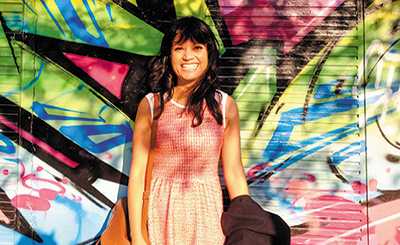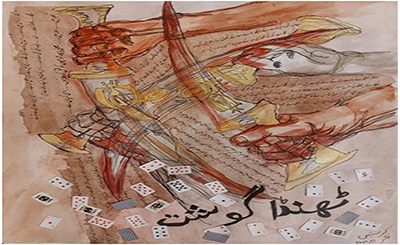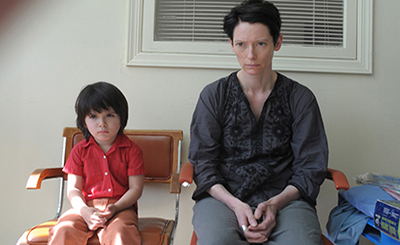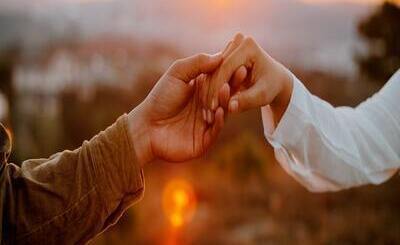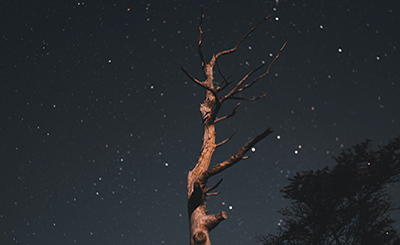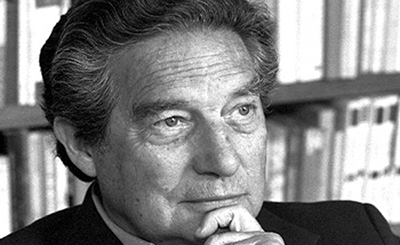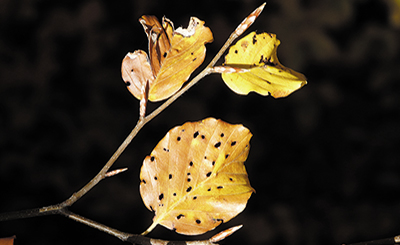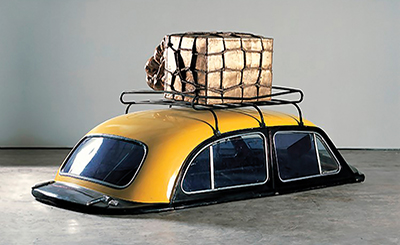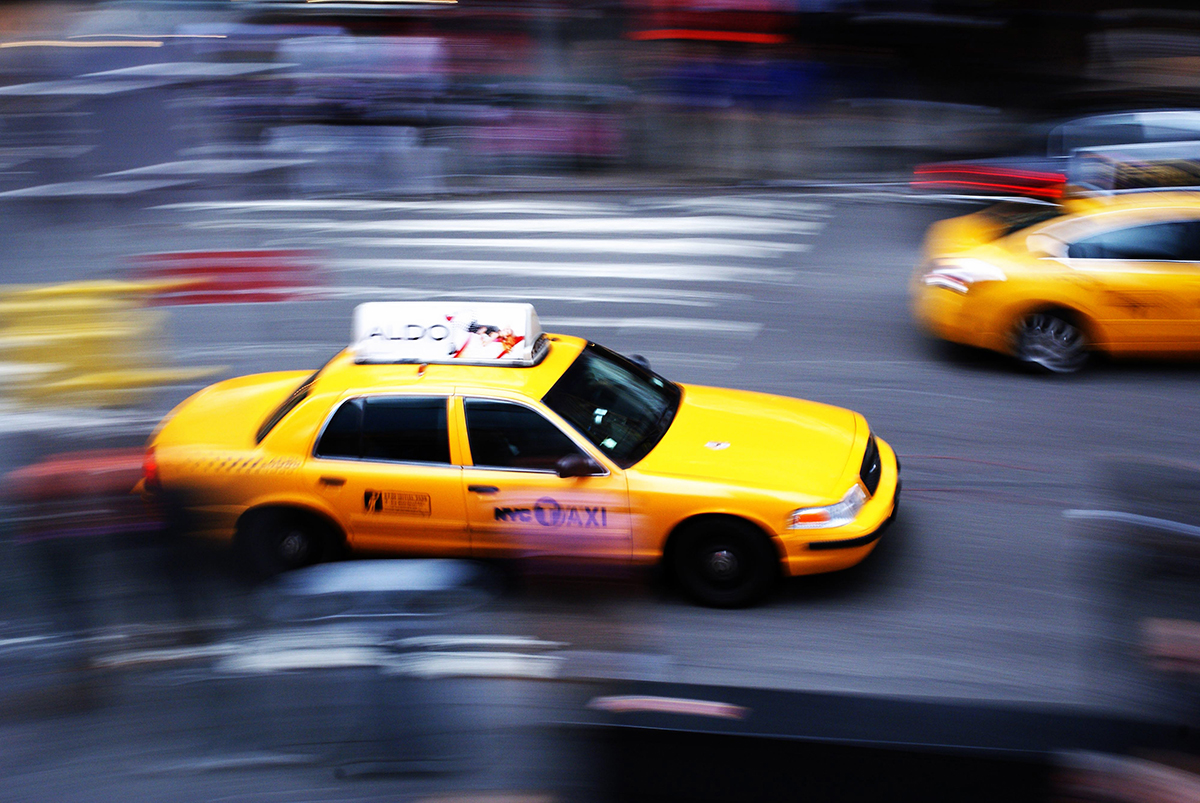
We had thought of asking the Uber driver to wait for ten minutes. Good that we didn’t.
She had sent her address at the Diamond Park at Chembur on my WhatsApp and the driver, who with his long moustache and studs did not look like a Mumbaikar but a settler from South, had little trouble in locating the turn towards Street 12. It was a quiet leafy boulevard lined with tall trees that looked out of pattern of the flora of the city.
A few leaves, some yellow and some still green, hung in the air before falling on the road as we stood there looking around to figure out which apartment in the alley was hers.
She came down to greet us, and emerged from the shadows of the stairwell. The first, un-missable, feature of hers was the leanness. She moved like a petite line of lead in the syrupy evening light.
She kissed and hugged Akshay as they had been colleagues and friends for a couple of years. I had been briefly introduced to her once in Kochi more than a year ago when I passed by the art foundation where she worked.
Once Akshay asked her if she remembered me, she smiled broadly. She had an array of strong white teeth. Her small eyes narrowed within the frames of her thick spectacles. She offered her lithe right hand.
‘Mithica.’
Her hair, black and steel-thick, was parted in the middle. We dropped our luggage at the stairwell and climbed the stairs which, ominously, had no railings. She made way for us as we stretched our tired legs towards the first-floor office space where she worked almost the whole day and night. Her days, she said, had no beginning and end. ‘I work all the time —sleeping when I am sleepy and waking up, whenever I wake up.’
The apartment with an unimpressive facade seemed to be a column of silence — with a som-bre air about it.
The three-storey building was owned by KR Bhave, a renowned, globetrotting artist, whose kinetic sculptors and installations had evoked rave reviews and triggered interest in some col-lectors with deep pockets. With its off-white paint and wooden-and-glass doors and windows, the building was out of sync with the chaos of the city. The stairs led to a long hall with a wooden bookshelf running from one end to the other. There were two Mac computers and books and papers of schedules were strewn across the tables. On the wall, hung a board on which pinned fool’s cap sheets of Bhave’s upcoming shows and travels.
‘I have been out of this place only once,’ she said as we settled down in wooden sofas. Ak-shay sat next to her. ‘I have no friends here except for a batch-mate at Khar.’ Ah, that’s why she had offered to take us out to Khar if we could come early. ‘Will take you to Khar Society, where you guys can have beer and we can talk.’ She had sent a message before noon but we couldn’t make it as we were with Akash discussing ways to improve his business of selling art online. Akash, who spoke four languages and swore in five, drove us around the city, after we had had bland tender coconuts in front of Raheja Classic on Link Road. He cursed all women drivers. ‘Idiots! They cause all the troubles on the road.’ When I asked him if his remarks weren’t a bit too discriminative and abusive, he smiled at me and said he meant what he said and he believed that no woman in the world knew how to drive properly. Akash took us to Just Kerala for beer and rice. As I crushed crisply fried sardine heads, the woman at the next table looked up and stared at me. When I winked at her involuntarily, risking a volley of expletives, she smiled and looked back at her plate. I didn’t know what in her look prompted me to wink. ‘Are there invisible threads of connection between strangers? Spirits that jammed and clicked?’ I finished off the remaining rice with curd.
‘That was the only time I went out,’ Mithica said, offering us some cold buttermilk in terra-cotta mugs. As I was sipping it, Akshay and Mithica said they would be back soon and went up to Bhave’s second-floor studio where he had been working on a terracotta ‘pink dog’, which was a departure from his more popular and characteristic works of defining passage of time through kinetic installations and fragments of classical poetry — measuring time with motion and stillness, interplaying with myth, mystery and collected facts.
I walked beside the bookshelf, running my eyes across the spine of the books, most of which were on culture, folklore and philosophy. There were clay miniatures placed on the top of the bookshelf — small domestic animals and plates and jugs from one end to the other. I picked up a collection of AK Ramanujan’s essays on Tamil folklore and Tamil and Kannada poetry. The Oxford University Press publication was put together by the late poet’s colleagues and literary friends. I looked for a piece of poetry as if I was thirsty for a drop of magic. The pro-saic and critical expositions on culture and folklore failed to quench my thirst.
Sometimes, the longing to read poetry left your throat parched. One line of it could be a stream in the desert. I ran my eyes through the text which analysed the temple imageries and references to Tamil folklores, still longing for a line of sheer poetry. The little chunks of stanzas, lacerated for scrutiny and academic postmortem, lay across the white pages like car-casses. The poetry in them was with the poet — in the grave.
‘What could they be doing upstairs?’ The thought crossed my mind. She had been living alone in the studio, in a long room in the third floor. As Bhave was mostly travelling, she had to prepare his schedules and see that his travel and stay had been taken care of. Bhave had a large art exhibition coming up, which he was curating, in Xinjiang.
‘Will they be kissing?’ I blamed the devil for that thought, and forcefully pondered on the metaphysical of life than the physical possibilities of two friends meeting after a long while.
‘My dad had fiddled with the spelling,’ she said. ‘He should have kept the original.’ The original spelling of the Hebrew word was M-i-t-h-c-a-h. Mithcah, a place in the desert where the Israelites camped during their exodus. Its meaning had something to do with sweetness of the water in the desert.
She said her father wanted her to be the sweetness in someone’s desert life. ‘He loved the idea of finding sweet streams in the middle of nowhere. Kind of epiphany, or, serendipity.’ She said, though she liked her name, she would not have minded Epiphany Joseph or Seren-dipity Jacob. ‘The Bible is full of name changes,’ she said, looking at Akshay, a Christian who had never read even a line of the Bible. ‘There’s no point in telling him all this,’ she said, and poked Akshay’s ribs with her bony elbow.
‘It should have been Mythica’ I said. ‘With a Y’. ‘Ah, no,’ she said and punched Akshay on his shoulders for his support to my suggestion. ‘Do you speak to yourself?’ I asked, wonder-ing how laborious it would be to live alone in a three-storey studio, giving company to half-done artworks and reference books on Medieval mythologies and Oriental philosophies. ‘Sometimes, I find this silence too noisy,’ she said, taking the empty mugs back to the kitch-en.
‘Sometimes, Bhave comes with his singer wife, and close the door of the studio,’ she said, running tap-water on the mugs. She came back, with a smile. ‘I doubt they make love among the half-done artworks.’ She winked at us.
‘Why do you think so?’ Akshay asked. The array of white teeth flashed as she smiled. ‘It’s my guess. A strong possibility, and I’m intrigued.’
‘The Pink Dog in the making must have closed its eyes not to see its creator making love.’
Bhave’s main studio was somewhere else in the city where she had never been to. ‘It’s said to be huge with a number of workers,’ she said, crossing her legs.
‘But, I’m fed up with the art world.’
Why, why…I thought it should be an envious job — to work closely with an artist whose works were a rage, and whose interviews themselves were monographs on contemporary art. ‘The hypocrisy of being a successful artist is inescapable. It’s not their fault. It’s been like that always,’ she spoke like a seasoned, bitter art critic. Her eyes narrowed and the thickness of her spectacles grew thicker. Her steely black hair reminded me, weirdly, of a dry season with the deep-orange flames of wildfire. It reminded me of a long exile — and, of an undefined loss and racial exploitation.
An architecture graduate from a National Institute of Technology campus, she had given up on architecture as a career. ‘I can never be a good architect. None of my classmates or seniors was a good one,’ she said.
‘I’m confused.’
Clarity was the bane of the unimaginative, I wanted to tell her. ‘Confusion is a mark of think-ing.’ Like the mark on Cain’s forehead. It was a reminder of innocent blood calling out for justice. Or, like circumcision by flint knives. God asked Joshua to sharpen flint stones and circumcise those who had been born during the exodus.’ Is it for protection or setting apart, or, plain discrimination?’
‘It’s mediocrity out there,’ she said. I wanted to ask her what she thought of Cain. ‘Why was he angry when his sacrifice had been rejected? Was it mediocre? And, mediocrity could not stand Abel.’
I wanted to comfort her by saying that mediocrity was the feature of the young generation born into Gmail accounts and multiple possibilities. Some of them made careers and wealth out of the mediocrity. ‘There’s nothing in there,’ she touched her chest. Her fingers shone oily in yellow light. It was well past dusk and the night had begun to fall. ‘What about a cup of tea at Udipi Cafe?’ She looked at both of us. ‘We can walk.’
She walked with the lightness and elegance of a model on the ramp. Her thin hands swung in a ‘V’ and faintly brushed her curved hip. Her each step was light and feline. As she and Ak-shay picked their way through the undisciplined crowd on the pavement, skillfully avoiding shoulders and legs, I watched them from behind, as the temple bells rung intermittently and aroma of camphor spread in the air. At Udipi Cafe, elderly couples, with slow, shivering hands, tore away pieces of dosa and sipped coffee from steel saucers. ‘When I don’t cook rice and curd curry, I order through OLA Chef,’ she said, bringing the cup of steaming tea gingerly to her brown lips. The steam from the cup misted her glasses.’ These Apps, she shook her head, ‘how do we live without them?’ That was worrying her as she was going to Xinjiang the following week. ‘I heard all these Apps are banned in China.’
We walked back to the studio at the same pace and through the same melee, stopping briefly for sweet pan, which she carried home to have later in the night. ‘What if I felt dizzy? You guys have to carry me home.’ Yes, I said, like the Betaal on the shoulders of Vikram. For a minute, I wondered if AK Ramanujan had written anything on Betaal.
The tall trees on either side of the boulevard had grown dark. Their leaves were a hundred eyes of ghosts looking down on the people walking by. In the front yard of the house just before the turning towards her apartment, a shirtless man was washing his black car. He dipped a soiled cloth in a bucket of water and wiped the bonnet. His gold chain caught the streetlight and shone like a glowing band that heavenly creatures wore in apocalyptic movies.
‘Can you check the train timings?’ I asked her. She sat in the sofa, curled down, and searched on a mobile App. ‘Here you are,’ she said, offering me the phone. ‘Ah, can’t believe we’ve spent five hours here,’ I said, looking out of the floor-to-ceiling glass door.
‘Five hours!’ Akshay rose to his feet. ‘Take some pictures,’ he said, leading her towards the bookshelf. He threw his arm around her, and she nestled in. As I clicked their photographs, in each of their phones, I was thinking of the solitude we were leaving her to. The noisy silence in an artist’s studio.
As I booked an Uber cab, she thanked us for the visit. ‘Mythica suits you…more than Mithi-ca,’ I told her. ‘Can you give me a glass of water?’ What AK Ramanujan’s essays could not do, perhaps, a glass of plain water could. She kept a glass under the water purifier’s tap. Drops of water filled the glass.
‘It’s so tasty.’ Not flattering. It indeed was.
As we walked down, led by me, followed by Akshay and then she, we were silent. Picking up the luggage from the stairwell, we walked out into the dark. The driver opened the boot and carefully placed our bags.
‘Wait,’ she said. She ran upstairs, and soon came down with a brown bag. ‘It’s for you,’ she said, offering it to me. ‘Open it only when you’re home.’
I opened the bag before the car had moved out of the alley. I pulled out a terracotta sculptor. I quickly turned back, but she had disappeared into the apartment. ‘You’re Mythica,’ I said to myself.
The Pink Dog sat shivering in my hands. Unfinished.
More from The Byword
Comments
*Comments will be moderated




